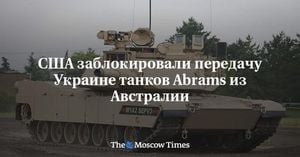In a tightly contested battle, the Liberal Party of Canada, led by Mark Carney, has emerged victorious in the federal elections held on April 28, 2025. This win comes against a backdrop of a divided nation, as the Conservatives made significant gains, particularly in central and western Canada. The Liberals secured 168 seats, while the Conservatives followed closely with 144 seats. The Bloc Québécois managed to obtain 23 seats, the New Democratic Party (NDP) 7 seats, and the Green Party just 1 seat.
One of the most notable outcomes of the election was the defeat of Jagmeet Singh, the leader of the NDP, who lost his seat in Burnaby−Centre, British Columbia. Singh, visibly emotional, acknowledged his defeat and announced plans to step down as party leader once a successor is appointed. Another significant loss was that of Conservative leader Pierre Poilievre, who was defeated in the Carleton riding, Ontario, where he had served since 2004. His Liberal opponent, Bruce Fanjoy, led by nearly 3,800 votes after the counting of 264 out of 266 polling stations.
Mark Carney, who won his first mandate in the Nepean riding, centered his campaign around the perceived threats posed by U.S. President Donald Trump. Carney's rhetoric included warnings about trade wars and the potential for Canada to be annexed as the 51st state of the U.S. In his victory speech, Carney reaffirmed his commitment to defending Canadian interests against such threats and emphasized the need to diversify the economy.
“The big changes are always worrying. We have a long way to go, but I trust you, I trust Canada. [...] We will fight,” Carney stated during his speech in Ottawa. He also extended a hand to his rivals, thanking them for their contributions to the electoral process and recognizing the strong campaign run by Poilievre.
Carney also expressed gratitude toward the Quebec electorate, vowing to defend the French language's place in Canadian culture. His party's victory was significantly bolstered by gains in Quebec, where they successfully won seats from the Bloc Québécois in various ridings, including La Prairie−Atateken, Longueuil−Saint-Hubert, and Trois-Rivières.
Despite losing around ten seats, the Bloc Québécois, led by Yves-François Blanchet, may still hold the balance of power in the new Parliament. Blanchet indicated that the interests of Quebec would be paramount in any negotiations, stating, “Canada must ensure that the interests of Quebec are respected. [...] Otherwise, there will be no support from the Bloc Québécois.”
The NDP faced the most significant losses, now holding less than a third of the seats compared to their performance in 2021. They lost ground in both Ontario and British Columbia, although they managed to retain their only seat in Quebec, with Alexandre Boulerice being re-elected in Rosemont.
In his address, Poilievre acknowledged Carney's victory while indicating his intention to remain leader of the Conservatives. “We know that change is necessary, but it is hard to achieve. Change takes time and effort. That’s why we need to learn from this election to achieve an even better result next time,” he remarked. He also promised that his party would work with the Liberals and other federal parties to counter Trump’s unjust tariffs.
Looking ahead, Carney plans to initiate discussions with President Trump in May, focusing on economic and security issues between the two sovereign nations. The shadow of Trump loomed large over the election campaign, particularly as he publicly urged Canadian voters to support him, reiterating his threats to annex Canada. “The threats are not idle,” Carney warned. “President Trump wants to take possession of our country. That will never happen.”
In the Mont-Saint-Bruno – L’Acadie riding, the Liberal Party also celebrated a significant victory with candidate Bienvenu-Olivier Ntumba, who garnered 46.9% of the vote, defeating Bloc Québécois candidate Noémie Rouillard, who received 35%. The Conservative candidate, Nicolas Godin, trailed with 13.6%. The voter turnout in this riding was notably high at 76.94%, surpassing both the provincial and national averages.
Ntumba's victory was anticipated early on, with projections indicating a strong likelihood of his success. Qc125, a projection site, initially gave him a 100% chance of winning, though this dropped to 71% by election day. The riding had seen a significant shift as the previous Bloc Québécois representative, Stéphane Bergeron, opted not to run for re-election due to family reasons.
Both candidates in Mont-Saint-Bruno – L’Acadie employed distinct strategies for their campaigns. Rouillard inaugurated an electoral office outside her riding, while Ntumba established his campaign base in Saint-Bruno-de-Montarville, at the heart of his constituency. Support from party leaders was evident, with Carney visiting Ntumba's campaign to express his backing.
In the broader context of the election results, Elections Canada had to suspend the counting of special ballots until 9:30 AM on April 29, 2025, due to the tight races in several ridings. As it stands, the Liberal Party forms a minority government with 168 seats, while the Conservative Party has 144, the Bloc Québécois holds 23, the NDP 7, and the Green Party 1. To achieve a majority, a party must secure 172 seats.
The election results reflect a complex political landscape in Canada, with significant implications for the direction of the government and its policies, particularly concerning relations with the United States and the internal dynamics of Canadian politics.




